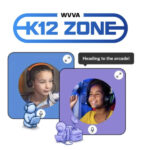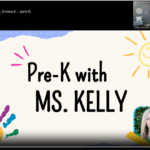Parental rights sometimes feel like they are under attack. Here are some tips to help balance them with school policies.
As a parent of an Indiana student, ensuring your child receives the best education possible is a priority. For many families, the debate between parental rights and school policies can create confusion, especially when it comes to online schooling. Schools are responsible for educating children, but parents are the primary decision-makers when it comes to their child’s well-being. This balance between parental rights and school regulations becomes even more crucial in an online education setting, where flexibility, autonomy and choice play significant roles. How parents can navigate this delicate balance, ensuring that their children receive a quality education while also respecting school policies?
The Importance of Parental Involvement in Education
Parental involvement has long been associated with improved student outcomes. From academic performance to emotional well-being, Indiana children with engaged parents tend to do better in school. Parents are uniquely positioned to advocate for their children’s needs, monitor progress and provide emotional support. However, with online schooling becoming more common, the role of parents in education has shifted.
In a traditional Indiana school setting, parents might be more passive recipients of information, while teachers handle day-to-day instruction and behavior management. With online education, especially in K-12 grades, parents often find themselves acting as the primary facilitators of their child’s learning experience. This shift means that parents are increasingly involved in their child’s academic journey, taking on roles that may conflict with school policies or expectations.
Understanding School Policies in Online Education
Online schooling, while offering flexibility and choice, also brings its own set of rules and regulations. These policies help ensure that students are receiving a well-rounded and high-quality education. However, some parents might find that school policies limit their ability to make decisions for their child, especially when it comes to learning styles, pacing or the materials used.
Common Indiana school policies include attendance requirements, grading standards, curriculum content and student behavior codes. These policies are designed to maintain consistency and fairness for all students. But when it comes to online schooling, some parents may feel that their child’s unique needs or learning preferences aren’t being fully accommodated by rigid school policies.
For example, in online schooling, students often are given a set curriculum that they must follow, which may not allow for flexibility in learning styles. Some schools may have rules around technology use such as restrictions on social media or time spent online that could clash with a parent’s vision of how they want their child to engage with learning.
Navigating the Tension Between Parental Rights and School Policies
Balancing parental rights and school policies can be tricky, especially in the online education environment. Below are key areas where parents can find a balance while staying engaged and involved in their child’s education.
Communication is Key
The first step in finding the balance between parental rights and school policies is maintaining open lines of communication with the school. Whether your child is attending an online charter school, public school with online offerings or a fully remote private institution, make sure you understand the policies that impact your child’s education.
Many online schools offer parent portals, where you can track your child’s progress, attend virtual meetings with teachers and communicate with school staff. Indiana parents should use these tools to ask questions about the curriculum, policies and any concerns they have. This proactive approach can help build a strong relationship with the school and ensure that you’re not blindsided in any policies or restrictions that may not align with your values.
Parental Rights: Advocating for Flexibility in Online Learning
One of the primary benefits of online schooling is its flexibility, but this flexibility can be limited by school policies. For example, certain schools may have strict attendance policies or schedules, while others may have a more flexible approach. If you feel that your child would benefit from more personalized pacing or a different teaching method, speak with the school about possible accommodation.
Most online schools offer some flexibility with when and where students complete assignments, but there can be strict policies regarding assessments or live sessions. As a parent, you should advocate for a learning experience that aligns with your child’s needs, whether that involves adjusting deadlines, requesting specialized resources or finding ways to make learning more engaging for your child.
Understanding Curriculum and Content Control
When it comes to school policies, the curriculum often is a primary point of contention. Schools may have standardized curriculums that align with state or national education guidelines. However, some parents may want to introduce alternative materials, especially in an online schooling environment where there’s often more room for flexibility in how students access and learn material.
Parents can ask for alternative resources or supplementary materials that support their child’s interests or learning style. If you believe that certain topics or materials are inappropriate for your child, don’t hesitate to express your concerns to the school administration. In online education, this especially is important since your child might be exposed to more content outside the traditional classroom setting.
Setting Boundaries Around Screen Time and Technology Use
Online schooling often requires extended screen time, and this sometimes can clash with a parent’s preferences or concerns. Many Indiana parents worry about the negative impact of too much screen time on their child’s health and development. While schools may have policies that require students to engage with online lessons and assignments, parents have the right to set boundaries when it comes to technology use at home.
This might involve scheduling breaks between lessons, limiting extracurricular screen use or encouraging offline activities. Parents also can communicate with the school to see if there’s any room for compromise regarding screen time during learning hours.
Finding the Right Parental Rights Balance for Your Family
Ultimately, the key to balancing parental rights and school policies in the online education setting is flexibility. While all Indiana schools must enforce policies to some degree so they can maintain consistency, parents have the responsibility and the right to advocate for their child’s well-being. This includes ensuring that their child’s learning experience is aligned with their unique needs, preferences and family values.
Engaging in constructive dialogue with the school, asking for accommodation when necessary and setting boundaries around your child’s education can help create a harmonious relationship between parental rights and school policies. By taking a proactive, communicative approach, parents can ensure that their child receives an education that’s both effective and personally meaningful.
The balance between parental rights and school policies, especially in online education, is a delicate one. As a parent, you have the right to advocate for your child’s best interests, while respecting the necessary policies that ensure their academic success. By being informed, involved and communicative with your child’s school, you can create an educational experience that works for both you and your child.















